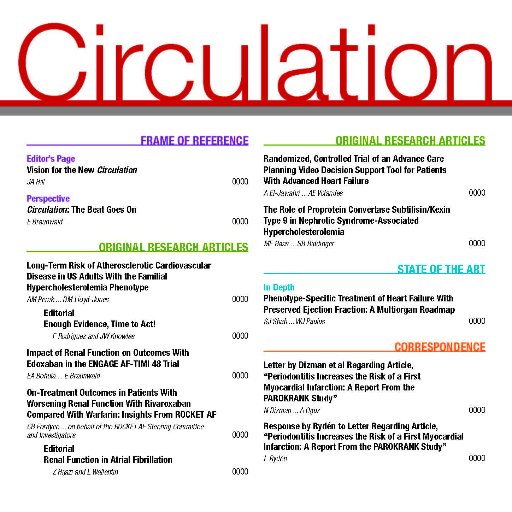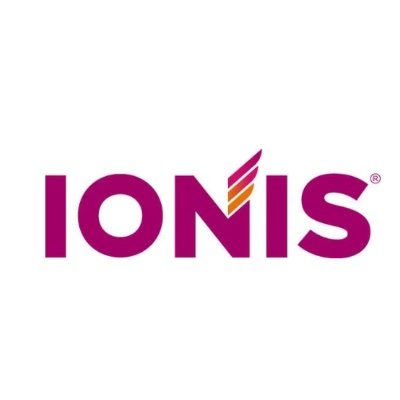
Sam Tsimikas, MD
@Lpa_Doc
Followers
14K
Following
1K
Media
751
Statuses
5K
Educational forum on Lp(a) and related areas. Professor UC San Diego.
San Diego, CA
Joined October 2016
For those interested in the Saturday Morning Lp(a) Class, the course is now linked to my bio and is open access. Big thanks to @TheBhupiThakur for organizing the twittorials. It is ~500 tweets in 24 classes. Syllabus enclosed. I wish to all the joy of learning.
All Sat morning classes by @Lpa_Doc is now linked to this updated thread. Enjoy
22
32
235
The world of @OxPL_apoB is moving beyond CVD to other areas, such as CNS. Wherever there is excess lipid (brain is highly enriched in lipids) and excess oxygen free radicals are generated, inflammation occurs. See new paper led by Jeff Dong on OxPL and multiple sclerosis.
0
3
22
Oxidized phospholipids on apo B-100 is independently associated with MACE after ACS, an effect which is attenuated with PCSK9i therapy @VeraBittner2 @gabrielsteg @DLBhattMD @W66588221White @Christa @Lpa_doc
https://t.co/xThUrZQ8UK
2
5
17
We have a new paper on @OxPL_apoB (using the automated Diazyme- @BostonHeartDX method) and Lp(a) with our close collaborators from Odyssey Outcomes. OxPL-apoB was reduced predicted MACE in the placebo group, amd interetingly, was a better predictor in people with low, not high.
3
11
50
That is the next question will will pursue...
@hsbhatia @Lpa_Doc @JACCJournals @UCSDCardiology @UCSDCardFellows @DrMichaelShapir @RishiRikhiMD @ASPCardio @FamilyHeartFdn Is it saying systemic inflammation driven by Il6 increases oxpl on Lp(a) making it more atherogenic?
1
0
13
Our new manuscript on the interaction between Lp(a) and IL-6 in primary prevention is out now @JACCJournals. Key points below. @UCSDCardiology @UCSDCardFellows @DrMichaelShapir @RishiRikhiMD @Lpa_Doc @ASPCardio @FamilyHeartFdn
https://t.co/vGjkOfXy8c
6
24
87
This weekend, groundbreaking data from Ionis’ pivotal studies in severe hypertriglyceridemia (sHTG) were presented at #AHA25. The unmet needs in sHTG are profound. Standard of care therapies and lifestyle changes often do not adequately lower triglycerides. With triglyceride
We are excited to announce groundbreaking data from our pivotal studies for severe hypertriglyceridemia (sHTG) at #AHA25. sHTG is defined by triglycerides ≥500 mg/dL & characterized by increased risk of acute pancreatitis & other morbidities. More: https://t.co/vsaRNmkqvp $IONS
1
1
10
The world of new triglyceride treatments is rivaling the world of Lp(a). Click on link below for latest view on anti-apoC-III therapies for triglyceride disorders and implications pancreatitis and CVD- pdf is open access. https://t.co/Lsoa3GeIr1
3
6
25
There is something to the idea one can make Lp(a) less sticky to vessel wall, and this might lead to better outcomes. In fact, all Lp(a)'s, except human, have defective lysine binding sites, and also no @OxPL_apoB so they are not as "sticky'. We and others previously postulate
7
4
29
Join us on Fri, Feb 6, for an all-virtual symposium about Lp(a) hosted by the Penn Lipid Clinic. Great topics and speakers! Register at https://t.co/7aeC7nNDNV
@dan_soffer @MarlysLPA @MWilkinsonMD @Lpa_Doc @ErinMichos @MGLevin @grsoffer @DrMichaelShapir
0
3
10
Ok Folks, Ask me anything about Lp(a), Episode #8 is a wrap. As always, I love all the questions and polite and curious engagement and hopefully it was a learning experience on both ends. Until next time...
OK folks, its been a very quiet month on this front, but now time allows for "Ask me anything about Lp(a)" #8; Tomorrow morning 9 AM PST, bring your🍿
1
2
15
Linus Pauling had the great distinction of winning not 1, but 2 Nobel prizes. The paper referred to, Rath et al in 1990, was one of the last in his illustrious career. But, he mistakenly concluded guinea pigs have Lp(a), like based on a faulty antibody that cross-reacted with
pubmed.ncbi.nlm.nih.gov
Lipoprotein(a) [Lp(a)] is an extremely atherogenic lipoprotein. Lp(a) has been found in the plasma of humans and other primates, but until now only in a few other species. The mechanism by which it...
@Lpa_Doc Follow the Linus Pauling Protocol.
9
0
11
Unfortunately, it's mostly a genetic risk factor, so simple remedies cannot affect it much. This is different than BP, DM, weight, smoking and other risk factors that can be modified to some extent with lifestyle changes.
@Lpa_Doc how does one AFFORDABLY lower lp(a)?--assume no insurance or out of pocket pay
2
0
4
The data do suggest this, but below 30 mg/dL (75 nmol/L), risk is minimal.
@Lpa_Doc Do you think lp(a) adds risk fairly linearly? Imagine a patient with elevated but not insane lp(a) numbers who could possibly use pcsk9 for 30% reductions or maybe CTEP inhibitors for 50% reductions to get around 40mg/dl or so vs 50-60mg/dl, but not quite down to 30mg/dl.
3
3
39
See my Saturday Morning Class on this, linked to my bio. Bottom line, many faulty experiments with antibodies that led to wrong conclusions. For some reason people find this Vit C story intriguing, and when there is no data it becomes like Hercules cutting off the head of Hydra,
@Lpa_Doc What are you thoughts about Linus Pauling’s hypothesis about the relationship that LP(a) seems to be an evolutionarily adaptation to lack of vitamin C?
0
0
1
One needs to start with overall risk, you might use some of the published scores -like PREVENT, see online calculator.
professional.heart.org
Welcome to the American Heart Association Predicting Risk of cardiovascular disease EVENTs.
@Lpa_Doc My Lp(a) is 83 mg/dL, ApoB is 115 mg/dL, ApoA1 is 179 mg/dL, and my PLAC test result is 506 U/L. To what level should I reduce my LDL? Thank you.
0
0
5
Sorry about the events. Pending specific therapies for Lp(a), you and your doctor might discuss whether a PCSK9i might be worth it, to further lower both LDL-C and Lp(a), you may qualify based on history.
@Lpa_Doc What’s latest treatment options for 50 yom with family history of high lpa , strokes, afib ,previous history of mini strokes- with carotid endartectomy for small clot-2mm - pathology shows complex atherosclerotic plaque , afib,with lpa of 280 on aspirin, eliquis, rosuvastatin,
2
1
3
At these values, you almost certainly have small isoforms, <20 repeats. This can only be done as a research test at Medpace right now. @GBHealthWatch has a semiquantitative method for this.
0
0
0
We don't have head to head studies to answer this question, but the antibodies have positive outcomes data and are likely similar in efficacy for LDL-C and MACE. Whether one can lower Lp(a) more with combo of PCSK9i and eze/BA is not known, but I don't think so as neither eze/BA
@Lpa_Doc Which pcsk9 inhibitor havé the more evidence for lp(a) reduction and/or Mace reduction?(if theres one..) aside apoB reduction, is there anti advantage for lp(a) level to combiné à pcsk9ab with bempedoic acid or Ezetimide? Thanks a lot ?
1
0
2
In general, the FDA tends to follow the level of evidence from the data presented to them. How that translates to clinical practice is a different question.
@Lpa_Doc Is the FDA likely or not so likely to permit primary prevention patients to be indicated for Pelacarsen or other new lp(a) lowering meds, once approved?
0
0
1

















